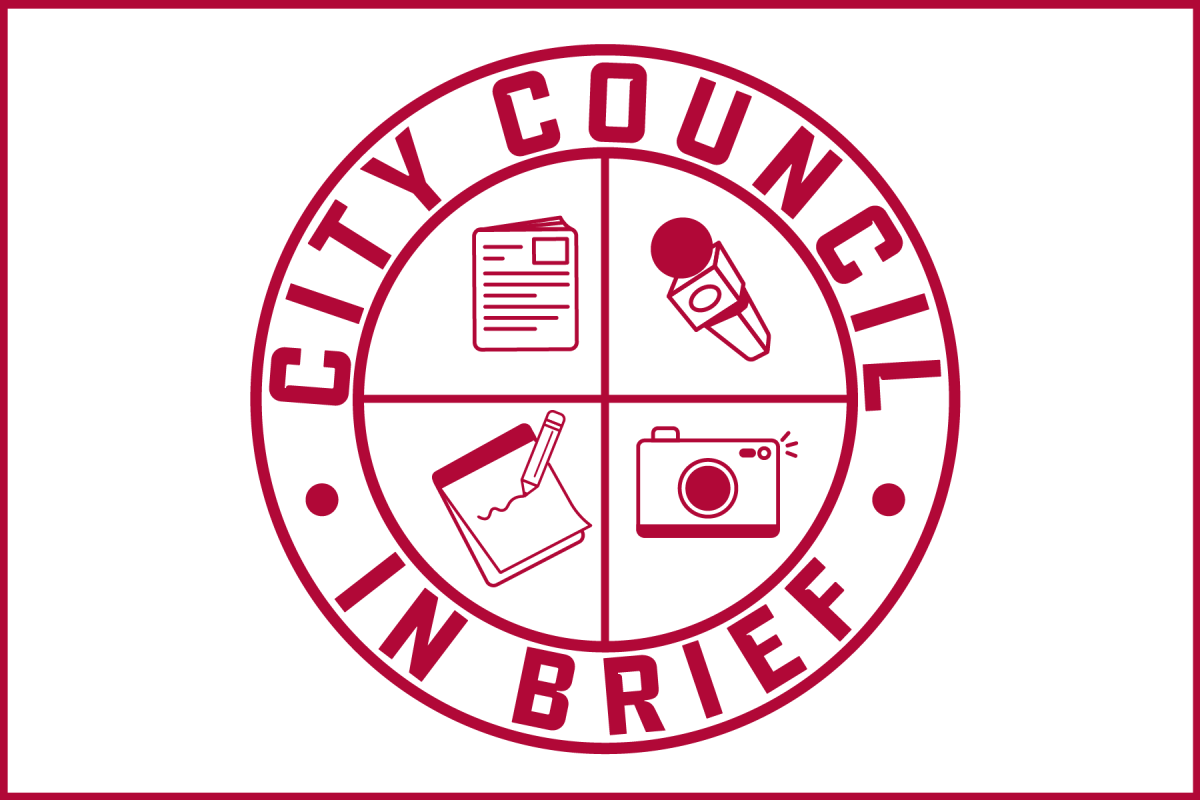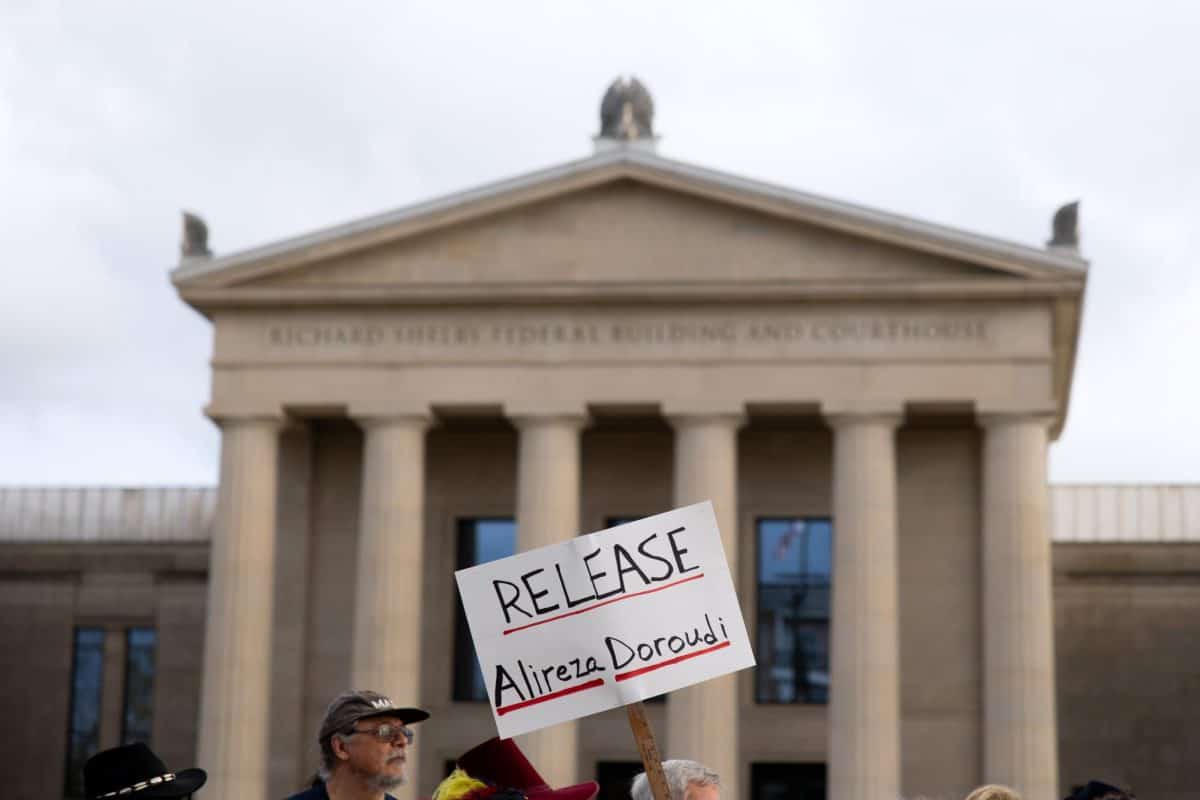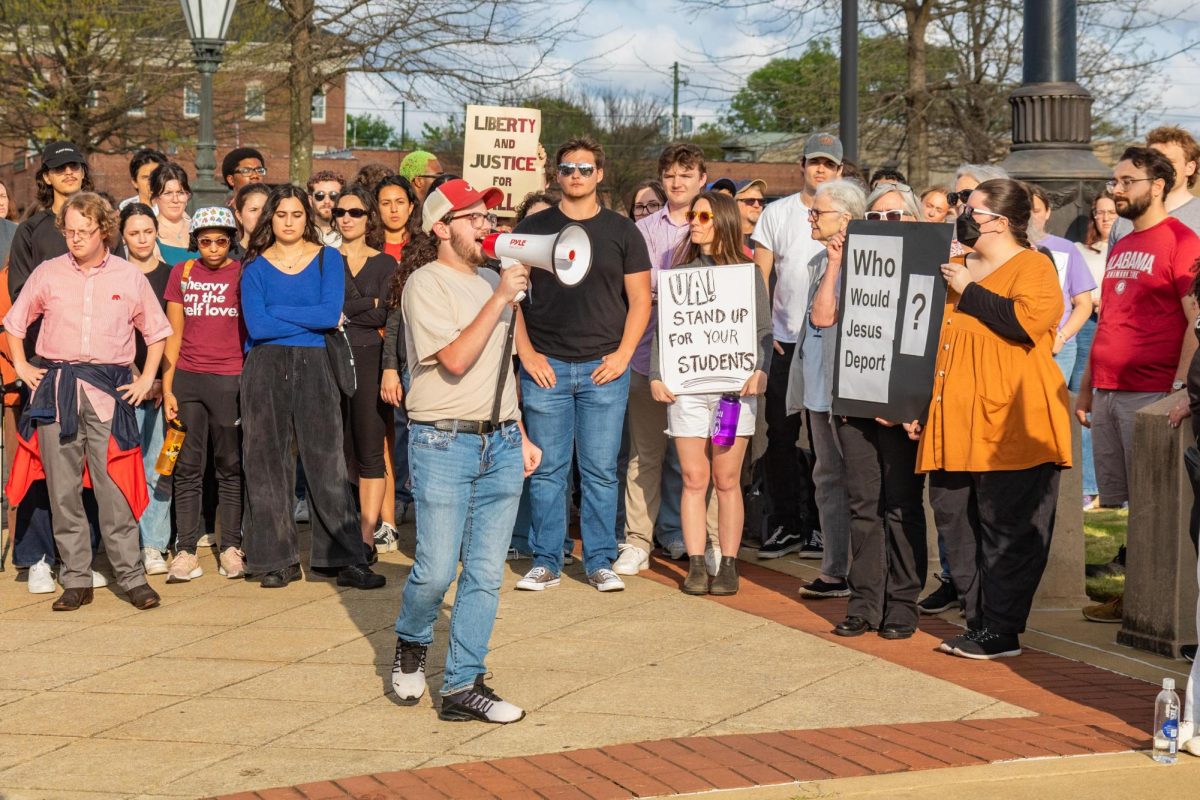Though it has been nearly a month since the sudden resignation of former University of Alabama President Guy Bailey, his position at the University still hangs in limbo. A letter of understanding signed by Chancellor Robert Witt designates Bailey as a tenured University employee, and no severance documents have been drawn up since his departure as president, Witt said in a Nov. 16 meeting with The Crimson White.
The appointment of Judy Bonner to fill the vacancy less than 24 hours after Bailey’s resignation resulted in questions from some faculty and staff on campus. No faculty, staff or students were formally consulted in the process to select Bonner after Bailey’s resignation.
Witt addressed the concerns of the truncated search process on Nov. 16 and laid out the timeline of events leading to the unexpected transition of the University administration.
The Timeline
Witt said Bailey approached him on Friday, Oct. 26, to discuss his ability to perform the duties of president due to concerns about his wife’s health.
“During that conversation, he had indicated to me that as early as the end of September, he and Jan, his wife, had talked about the fact that her physical condition was making it very difficult for him to do everything he wanted to do as president,” Witt said. “So as much as a month before the transition, he had begun to think about the fact that this might not work.”
Witt said Board of Trustees President pro tempore Paul W. Bryant Jr. joined him and Bailey in the Oct. 26 meeting, along with former president pro tempores Joseph C. Espy III and Finis E. St. John IV.
“We talked with Guy about how he felt and how he felt about his ability to go forward,” Witt said. “No decisions were made at that meeting regarding his stepping down.”
When The Crimson White asked St. John about that meeting, he said he didn’t recall any such conference.
“I don’t remember any meetings,” he said. “I know we all talked on the telephone, but I didn’t have any meetings with him about the selection of Bonner that I recall.”
St. John declined to answer any further questions regarding Bailey’s resignation.
“I really don’t want to talk about Dr. Bailey’s resignation,” he said. “I don’t want to get into all that. I very much respect what he did. I think it was a difficult situation for him and his family, but other than that, I really just don’t want to comment on it because of the personal nature of his situation.”
Witt said Bailey took the weekend to think things over, and they met again on Sunday, Oct. 28, where he decided he wanted to step down.
“He took a couple of days to think about how he would formally announce it,” Witt said. “He decided he wanted to make the announcement on a Wednesday afternoon. I informed the pro temp (Bryant) that that’s when the announcement would be made.”
Witt said he communicated to Bonner the afternoon of Oct. 28 that he wanted to recommend her to the board.
On Nov. 1, following a closed-door executive session, the Board voted unanimously in favor of Witt’s recommendation and installed Bonner as the first permanent female president of The University of Alabama.
Campus Conversation
Despite Bonner’s publicly smooth transition into the position during the Board of Trustees meeting, some faculty members expressed concern with the quick appointment.
Paul Horwitz, the Gordon Rosen Professor of Law, wrote an email to the Faculty Senate and President Steven Miller on Nov. 2, raising questions about the lack of campus involvement in the process.
“I am simply surprised by the swift choice and would like to know why she was deemed the best candidate for the job and, indeed, whether there were any other candidates,” Horwitz said in the email.
His letter prompted a response from Miller in the form of an open letter to the Faculty Senate.
“That evening I became aware of rumors and ugly innuendo about the succession process and its outcome passing around the University faculty and staff. Some of the stories made me ill,” Miller said. “Some were downright alarming.”
Miller wrote that he called President Bonner Saturday, Nov. 3 after the board meeting to straighten out the rumors he was hearing.
“When I put the Senate on the line supporting her presidency, I wanted to make sure I was on solid ground with what had transpired,” Miller said. “We had a direct and good conversation that put to rest my concerns about the rumors and innuendos.”
Although no search committee convened or was consulted in the process of Bonner’s appointment to university president, as opposed to the original search process earlier in the year, Witt said he looks at the two appointments as one search instead of two.
“I can see how looking at the search process for President Bonner would appear to be different from the search process for President Bailey, but I’d like to suggest an alternative perspective,” Witt said. “Four months earlier, we had completed an exhaustive national search. It involved a search committee of 25 plus people with significant faculty, staff and student representation.”
Witt said he did not consult campus members regarding Bonner’s appointment because he felt the attributes they were looking for hadn’t changed in the four months since Bailey was hired.
“It was my belief that the likelihood, that what the faculty, staff and students were looking for, had materially changed in four months approached zero,” Witt said. “With that extensive input being only four months old, I did not see the need to put the campus through another extensive search.”
Miller served on the presidential search committee that recommended Bailey to serve as university president in July, and said he felt the faculty was given significant opportunities for input throughout the presidential search committee that recommended Bailey.
“I completely support what the chancellor says about faculty input. At our senate meeting this last Tuesday, it was pointed out that this was the most extensively sought out faculty opinion of a presidential search ever,” Miller said. “Dr. Witt knows that I will say anything that is on my mind to him. All I can say is the truths from my perspective: we had our way totally with the search.”
Moving On
Despite Bailey’s resignation, he remains an employee of the University until August 2013, when he can choose return to the classroom as a professor in the English department.
“That will provide him a period of time, if he elects to return to the classroom,” Witt said. “I felt that the honorable thing for the University to do was to give him the same type of developmental leave appointment as if he had served here for years.”
Bailey’s status as a tenured professor was outlined in a letter of understanding or appointment that he signed on July 23, 2012. Though the University president never operates under an employment contract, this letter stated the conditions of Bailey’s employment and salary.
In addition to setting his salary at $535,000 per year, the letter required that Bailey live in the President’s Mansion on campus while he was president.
Bailey will remain a tenured employee of the University until he chooses otherwise. Two staff members who moved from Texas Tech with him will be moving on.
Witt said it was his understanding that Mary Diaz, former special assistant to the president, and Justin Clark, former chief of staff, would be leaving the University.
Though Bailey officially resigned nearly a month ago, Witt said no severance package or new letter of understanding has been negotiated, but that the Baileys would be moving out of the mansion the week after Thanksgiving.
“We have not drawn up a letter regarding his severance,” Witt said, stating the University wanted to treat Bailey fairly. “It says something about The University of Alabama in how it is treating Dr. Bailey. But Dr. Bailey’s confidence in the University – he didn’t need a letter. He knows how it treats its people.”
Witt could not comment on when a letter regarding Bailey’s severance will be drawn up.








